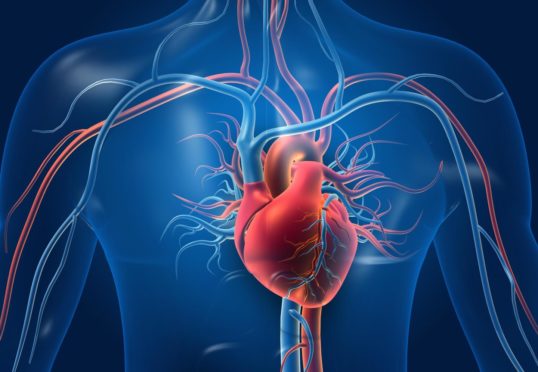A simple blood test could help doctors spot deadly damage to the aorta, the body’s largest blood vessel, say researchers in Dundee.
Acute aortic syndrome (AAS) occurs when the wall of the aorta tears and blood begins to flow between the layers of the blood vessel wall.
Patients with AAS need immediate treatment – in the most severe cases emergency surgery – to prevent the artery from rupturing and the patient potentially dying.
However, diagnosing the disease in time is often difficult as symptoms, such as chest pain, can be attributed to other more common conditions.
Now, researchers at the Universities of Dundee and Edinburgh have found testing for a molecule called ‘desmosine’ may speed up diagnosis of this deadly disease which affects around 3000 people in the UK every year.
Research funded by the British Heart Foundation (BHF) compared blood concentrations of desmosine in 53 patients known to have AAS and 106 people without the disease.
People with AAS had almost double the concentration of desmosine in their blood. Desmosine levels were also associated with aortic growth which occurs when the aorta becomes damaged.
The team believes desmosine is released into the blood when the tissues within the wall of the aorta break down, signalling that the aorta has been damaged and is at risk of expanding or bursting.
They now hope to use these findings to explore whether a simple blood test for desmosine could speed up the diagnosis of AAS in hospital.
‘It is almost the holy grail’
Dr Anna-Maria Choy, Clinical Senior Lecturer at Dundee’s School of Medicine, said:
“Time is absolutely vital when the aorta develops a tear and so anything that enables clinicians to make a rapid diagnosis and begin treatment right away will undoubtedly save lives.
“Desmosine is almost the holy grail in this regard because until now we do not have reliable blood tests for aortic tears.
“This is why my colleague Dr Jeffrey Huang sought to develop a simple test that would allow for quick diagnosis. Using his technology, we have been able to work with collaborators in Edinburgh to prove that desmosine is a biomarker of AAS.”
The British Heart Foundation believe if the findings are replicated in larger studies, this tiny molecule could one day form the basis of a much-needed hospital test to detect AAS, speeding up treatments and saving lives.











